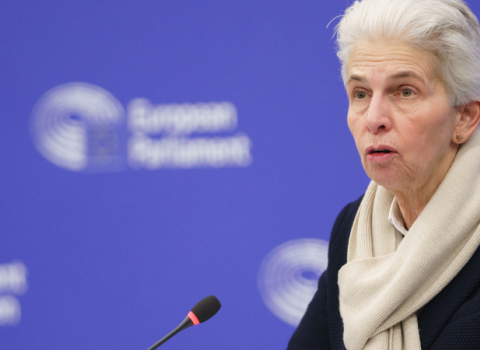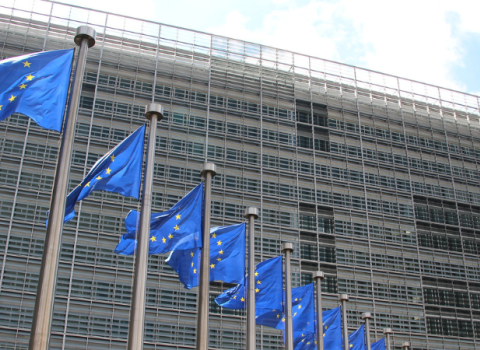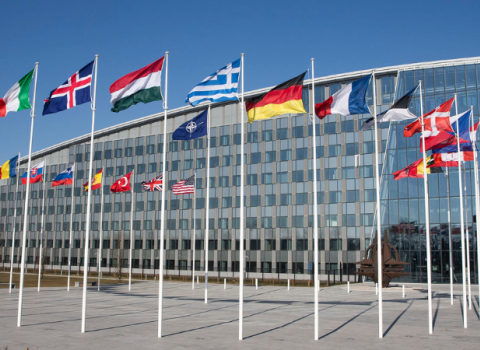European Commission is exploring ways to use blockchain tamper-proof technology to share data between member states in security critical areas including health, tax, chemicals and food traceability. EU-level pilots are to be funded in the next budget

The European Commission is to explore broader EU-level uses of blockchain beyond its original role in the oversight of cryptocurrencies, and is looking at the potential of the secure records management software to handle sensitive data passing between member states more efficiently and securely.
“In the next [EU budget], we would like to possibly make investments in areas like VAT reporting, chemicals registration, climate data and others,” said Pēteris Zilgalvis, head of unit for start-ups and innovation in the digital single market directorate. “You could have cross-border shared information in a digital ledger for those that need to know.”
Zilgalvis’ comments at a seminar in Brussels on Tuesday follow an announcement by the EU last week that it was establishing a forum to study the technology.
“It’s a breakthrough technology of great interest. But we don’t believe the hype, we’re taking a critical view of where it can be used,” Zilgalvis told an audience gathered by the Brussels-based think tank Bruegel.
Announcing plans for the forum last week, digital commissioner Mariya Gabriel said the EU wants to be at the forefront of the wider application of blockchain. "We have been funding blockchain projects since 2013. The total support will soon reach €100 million," Gabriel said.
One of these projects is a digital health information network, My Health My Data, which encourages patients to share their data.
Blockchain is so called because data is held in sequential blocks that are linked securely to each other. Data in a particular block cannot be changed retroactively without all subsequent blocks in the chain being altered also.
That means although the system can be open to multiple users, it is difficult to reverse or change what has been recorded. A hacker would have to gain access to every computer that holds a copy of the blockchain database, and at the same time, in order to tamper with it. The software also prevents inadvertent changes to data by regular users.
Johan Pouwelse, associate professor at Delft University of Technology and founder of Tribler, an early file sharing network that has received multiple EU grants, suggested the Commission fund a wide range of blockchain experiments.
“We have no idea how it’s going to go. There is no textbook you can download, so we should try everything,” he said. “From my own personal perspective, a bit of room to violate outdated rules and principles would be nice.”
German MEP Jakob von Weizsacker said there is a risk of allowing one system to dominate. "Once you’re locked into one particular platform, of course that can imply enormous monopoly rents," he said.
Blockchain-based trading platforms are sprouting up around Europe. In Spain, banking, energy and telecommunications companies have teamed up to form Alastria, which they claim is the first multi-sector, semi-regulated national blockchain network in the world.
The computer services company IBM is building system to provide cross border finance for small and medium sized companies that traditionally are dependent on national sources of capital. That initiative involves Deutsche Bank, HSBC, KBC, Natixis, Rabobank, Société Générale and UniCredit.
The technology could be used to cut out trusted intermediaries including banks, insurance companies and governments. “Blockchain can cut out the middle man,” said Pouwelse. “If you can build a tamper-proof infrastructure, and you scale it to billions of users, you’ve created the trust internet.”
Exuberant predictions for blockchain cannot ignore the extraordinary amounts of electricity blockchain needs to process data, as Zilgalvis acknowledged. “We know it’s not green,” he said. It has been estimated that Bitcoin, for instance, uses the equivalent of the annual energy consumption of a small country.
Lawyers will also need to assess whether the technology is compliant with new EU data protection rules, which go into force in May, Zilgalvis added.





 A unique international forum for public research organisations and companies to connect their external engagement with strategic interests around their R&D system.
A unique international forum for public research organisations and companies to connect their external engagement with strategic interests around their R&D system.